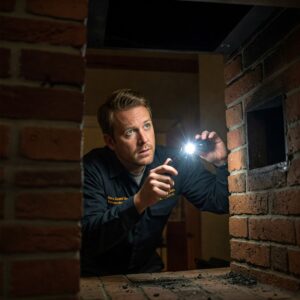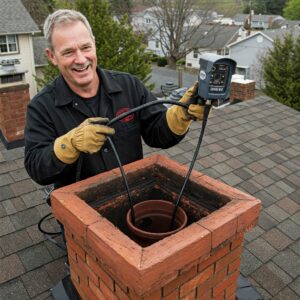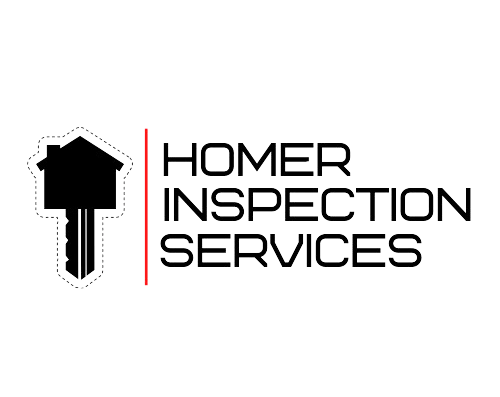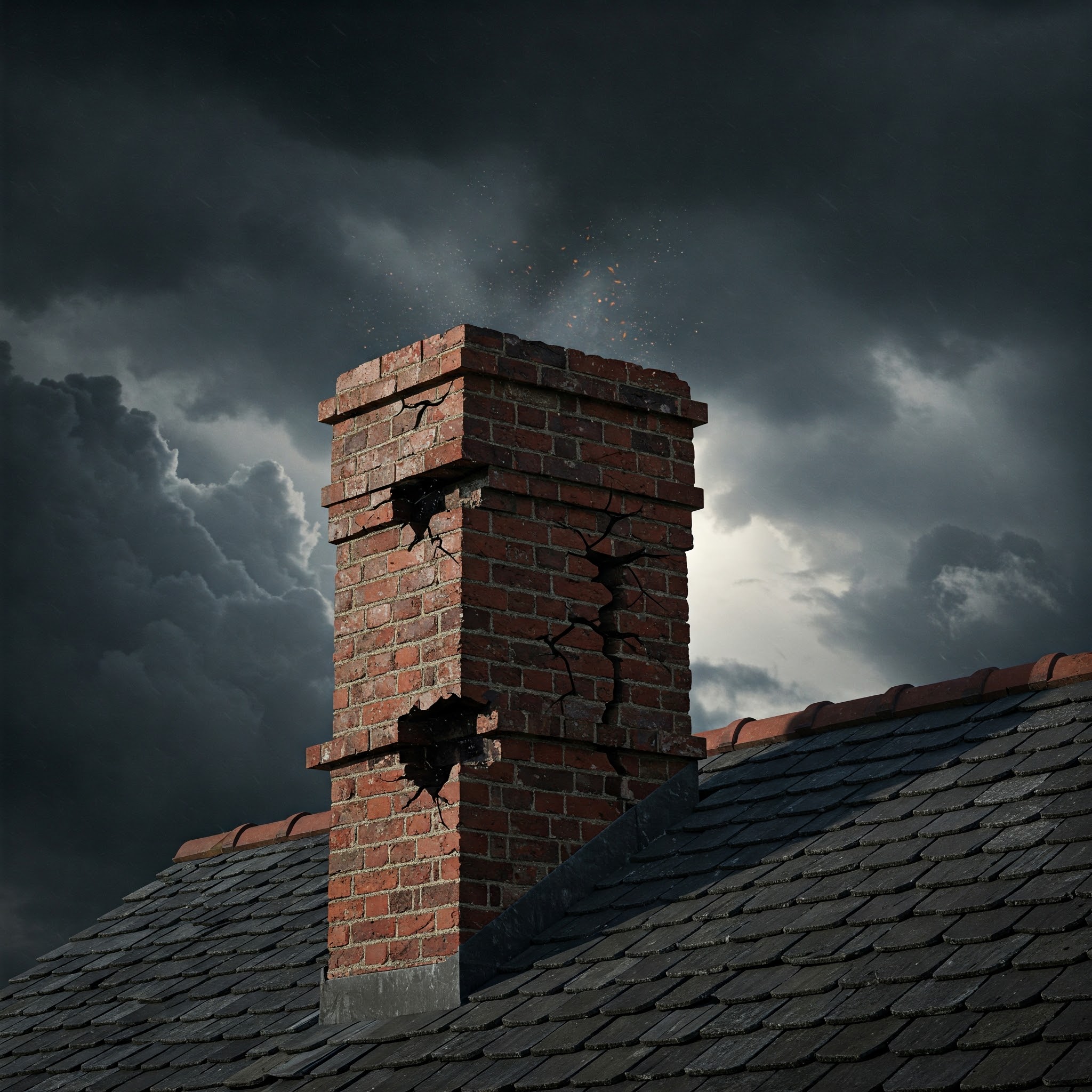Introduction: More Than Just Santa’s Entrance – Why Chimney Inspections Matter
Your chimney might evoke cozy winter evenings and festive holiday cheer, but it’s a critical home component that requires regular attention. Neglecting chimney maintenance can lead to serious safety hazards, including chimney fires and carbon monoxide poisoning. Whether you’re a homeowner in Philadelphia, a buyer in Wilmington, or a real estate agent in PA, DE or MD facilitating a deal, understanding the importance of chimney inspections is paramount. This blog will clarify the different levels of chimney inspections, discuss common chimney problems and their remedies, and explain how they relate to the home inspection process.
Level I Chimney Inspections: What Home Inspectors Do
During a standard home inspection, a qualified home inspector, like those at Homer Inspection Services, will typically perform a Level I Chimney Inspection. This is a basic visual examination of the readily accessible and visible portions of the chimney structure and flue.
- What it includes:
- Examination of the chimney exterior for damage or deterioration.
- Inspection of accessible portions of the interior flue.
- Assessment of the basic soundness of the chimney structure.
- Checking for obstructions or debris.
- Limitations: A Level I inspection is a visual scan. It does not involve specialized tools, dismantling parts of the chimney, or accessing concealed areas.

Level II and III Chimney Inspections: When You Need a Chimney Specialist
While a Level I inspection offers a general overview, more in-depth inspections are often necessary, especially when buying or selling a home, or if specific problems are suspected. These are performed by certified chimney sweeps or chimney inspectors.
- Level II Inspection ($500-$1,000): This is a more thorough examination that includes everything in a Level I inspection, plus the inspection of accessible portions of the chimney exterior and interior, including attics, crawl spaces, and basements. It often includes a video scan of the flue interior. It’s required when significant changes are made to the system, such as fuel type changes, relining, or after events like chimney fires.
- Level III Inspection ($500+): This is the most comprehensive inspection, including all aspects of Level I and II, as well as the examination of concealed areas of the chimney structure and the flue. This may involve the removal of certain chimney components. It’s necessary when serious hazards are suspected.

Common Chimney Defects Found By Your Home Inspector
Chimneys can develop various issues over time, requiring different repair strategies. Here are some common problems and their typical cost ranges:
- Damaged Chimney Crown: The crown, which protects the chimney from water intrusion, can crack and deteriorate.
- Remedy: Resealing, resurfacing, or replacing the crown.
- Estimated Cost: $175 – $3,000 (depending on the extent of damage and repair).
- Cracked Flue Tiles/Liner: The flue liner can crack, compromising its ability to vent combustion gases safely.
- Remedy: Replacing or relining the flue.
- Estimated Cost: $2,500 – $7,000 (for relining).
- Damaged Flashing: Flashing, which prevents water penetration at the roof-chimney intersection, can deteriorate or become improperly sealed.
- Remedy: Repairing or replacing the flashing.
- Estimated Cost: $200 – $2,000.
- Spalling Masonry: Bricks or mortar can deteriorate due to water damage and freeze-thaw cycles.
- Remedy: Repointing (replacing mortar) or masonry repair/rebuild.
- Estimated Cost: $500 – $2,500 (repointing) to $10,000+ (rebuild).
- Creosote Buildup: Combustible deposits can accumulate in the flue, increasing the risk of chimney fires.
- Remedy: Chimney sweeping and cleaning.
- Estimated Cost: $80 – $500 (depending on level of cleaning).
Important Note: These are just estimates, and the actual cost of repair can vary significantly based on factors such as the extent of damage, chimney height, accessibility, materials, and labor costs in the Philadelphia and Wilmington areas.
Why Homebuyers and Real Estate Agents in Philadelphia and Wilmington Should Care
- Homebuyers: A Level II or III chimney inspection can reveal hidden defects that could lead to costly repairs or safety risks. Understanding the potential problems and their associated costs is essential information before you invest in a property.
- Real Estate Agents: Recommending a thorough chimney inspection, including information on potential defects and repair costs, can protect your clients and prevent potential liabilities down the line. It demonstrates due diligence and commitment to client safety.
Professional Sources and Further Information:
For more detailed information on chimney inspection levels, standards, and potential problems, you can refer to resources from the Chimney Safety Institute of America (CSIA), the National Fire Protection Association (NFPA), and reputable chimney repair services.
- Chimney Safety Institute of America (CSIA)
- National Fire Protection Association (NFPA)
- This Old House – How Much Does Chimney Repair Cost?
Don’t Risk It: Inspect It
Whether you need a Level I inspection as part of a comprehensive home inspection or a more specialized Level II or III evaluation, it’s crucial to prioritize chimney safety.
For thorough and reliable home inspections in the Philadelphia and Wilmington area, contact Homer Inspection Services today!
Visit our website to schedule your inspection: www.homerinspect.com
#ChimneyInspection #HomeInspection #FireSafety #RealEstate #Philadelphia #Wilmington #HomerInspectionServices #CSIA #NFPA #Homebuyers #RealEstateAgents #PAHomes #DEHomes



